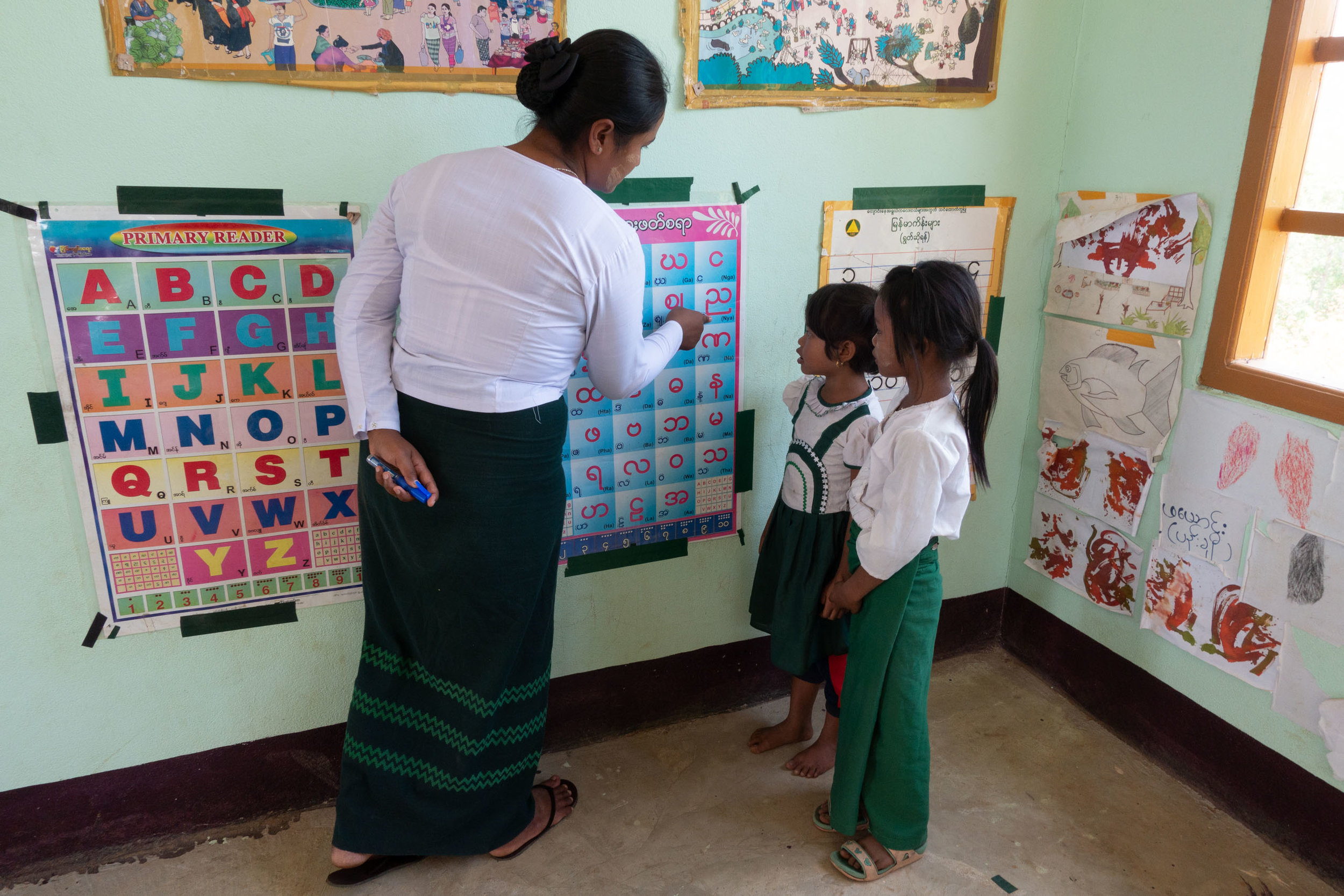On both sides of the road water buffalo and farmers waded through small green patches of marshy rice paddies surrounded by fields of brown. Golden Buddhist temple spires punched through thick tree canopies at the foot of mountains in the distance. The trees dotted beside the road made the sunrise flash through them in staccato notes like a morse code. Everyone was preparing for the coming rainy season. Suddenly our driver stopped and a motorbike pulled up beside us. A young boy clung to the back of the driver and studied our faces as the two drivers spoke in the local dialect. The motorbike turned around, and we followed. They were our guides. We had missed the turn.
We left the paved roads and dove between the expansive rice fields toward the foot of the mountains, passing the temples that had looked so distant. Soon, we were climbing and the road was getting rougher. Our small car became less and less appropriate for the road that we were on. Small bridges had been partially washed away and pieced back together. Rutted dirt roads scraped the bottom of our car. Soon, we were overlooking kilometers of rice terraces and rice fields. We reached the village at the top of the mountain just as it was coming to life. Men were weaving baskets and sharpening tools for field work. Women were washing clothes in buckets and preparing food. Many of the ethnic people in this area are known for being fierce militants and have existed in tension with the national government on an almost constant basis. For some of them, military training is a way of life, and is something that begins at an early age for children. But on this morning, you never would have guessed the history of conflict in this region.
Project AK47 has decades of history in this village beginning in 1998. It started with a children’s home we opened to protect children from being conscripted into the military. Over time, our approach evolved as the situation changed. Now, our work in this area is focused on strengthening the local education system to help prevent children from being conscripted into militant groups. Better work opportunities and a better economy reduces the risk even further of children being conscripted into the military. The evidence of this investment is apparent.
During our visit we stepped inside a school building that was built in partnership with the government on land donated by Project AK 47. The school building almost seemed out of place: a green and white concrete block building resting on the edge of a mountain among a village of small wooden huts. It was by far the one of the largest buildings in the area. The students were waiting inside neatly dressed in the white shirts and green pants and skirts that are typical for Burmese students. The room was quiet with shyness as the teacher prepared her lesson, but not for long. The teacher approached a poster containing the Burmese alphabet and pointed with her finger to the first letter. She pronounced the name of the first letter rhythmically. Suddenly, the room erupted in unity as each child belted out at the top of their lungs an echo of what she had just pronounced. She continued on to the second and third letters, each time the room growing louder as children seemed to take joy in competing to yell the alphabet the loudest.
Education was not readily accepted in this area. At first, parents refused to let their children go to school. They thought that if they allowed their children to study that evil spirits would curse their family and they would all die. It took years for some parents to realize that not only were students not dying, but that education was improving their quality of life and their hopes for a future. As we stepped back outside, there was an even larger school being built just meters away to accommodate more students. They were already outgrowing the one we were in. Some students travel from villages far away and stay overnight in boarding houses for a chance to study. Education is slowly spreading through this mountainous area and with each student that is studying, a child is also being protected from conscription into militant groups. We’re thankful for every one of our donors that is helping us protect these children and providing education in the most remote parts of the world.

